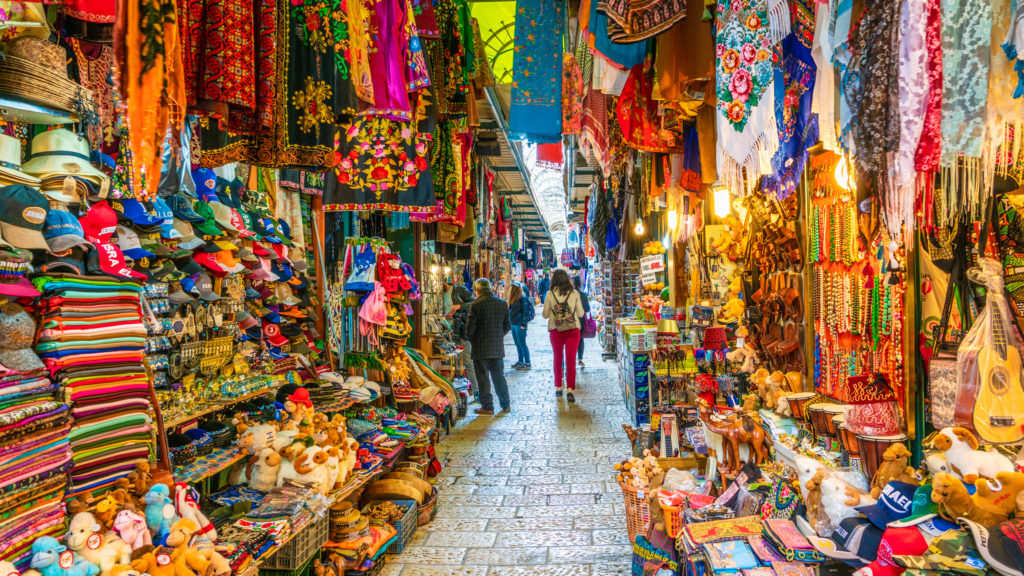All worlds have an economic base. Economics is how resources are distributed. When thinking about creating economic systems, you have to consider things like money, trade, taxes. Thus, economics are intimately tied to how governance is structured, and significantly influenced by climate and resource availability (e.g. how much arable land, is it a mining colony and has to buy food off world).
The economy is also a function of how things are made. Here are critical questions we must consider, when outlining the economy of any world you create.
- Do people craft their own clothes, furniture and soap or do they trade for it or buy them?
- If they buy them, do they go it in a market or bazaar like the one below, in a store, or ask Alexa?
- If things are crafted by individuals, who are they organized? By the municipality, a guild, a union or computer?
- How are things made – in factories or by hand or something else?
- Do factories use workers in exchange for salaries or robots for production? How are the relationships between workers and owners structured?
- What raw materials are used for production – raw materials or are they replicated from waste or recycled materials?
- Are the factories owned by businesspeople or the government or aliens or a coop among the workers?
The economic system you create underpins how your characters and populations survive? Sometimes, stories take big leaps of faith with the economy.

The biggest leap of faith is the economy of the Star Trek verse. You never saw money, although individual ships seemed to trade for things they needed. At times, we saw them access the resources they needed to power the Enterprise, but it was never clear if they bought them or not.
The Star Trek verse, I propose, was an economy built on abundance not scarcity. Our current economic system is based on the assumption of scarcity, where we have to have a way of making choices about who gets what. There are generally two broad ways of doing that – markets which let supply and demand determine price – or a government determines price. In Star Trek, there always seems to be enough to go around if you are part of the federation. This is likely because the replicators can create anything needed. So, no prices are needed and no choices need to be made under ordinary conditions. Even on Star Trek Voyager, lost in the Delta quadrant, the crew did not seem to struggle with resource deprivation, although they did trade from time to time to keep the ship powered.
The lesson of Star Trek is that we don’t have to assume scarcity, although we seem to be hardwired for it. How we organize to prevent scarcity, is where world building comes in.
Having written all that, it seems that Star Trek is unique. Most worlds created in film and story still assume scarcity as the foundation of the economic system. Do you know of any other examples, where abundance underpins how people live, work and play?
Don’t forget to visit all the other bloggers participating in the A to Z Challenge.
Heading Photo Credit: By NBC Television
